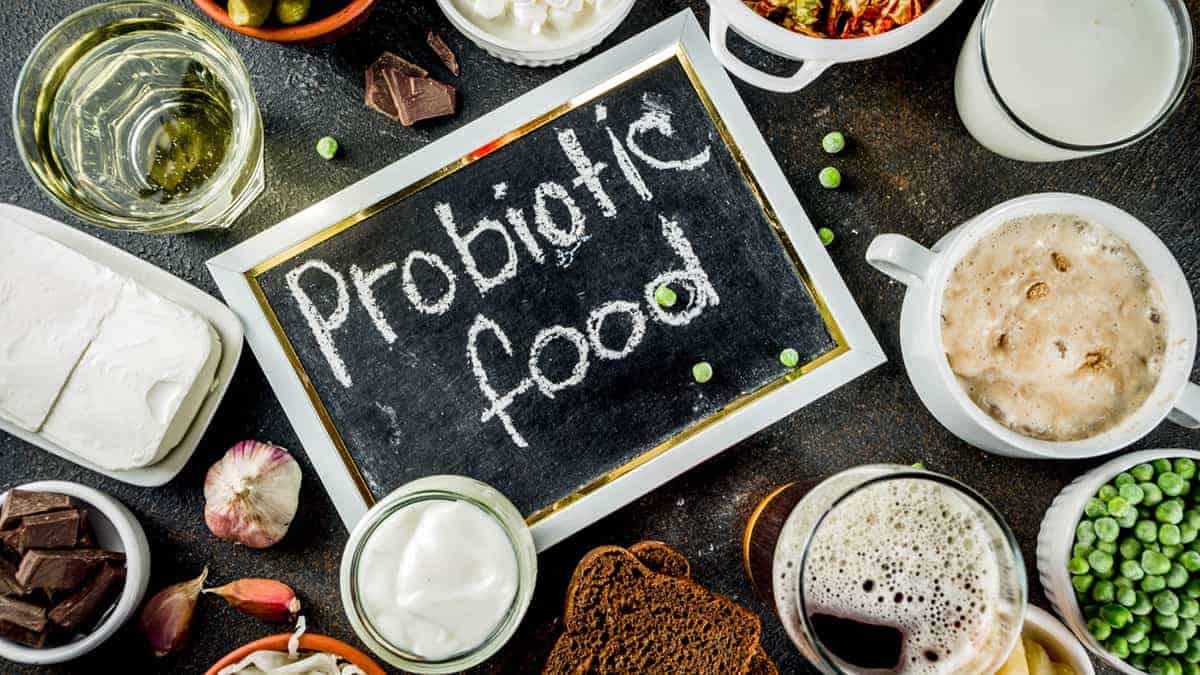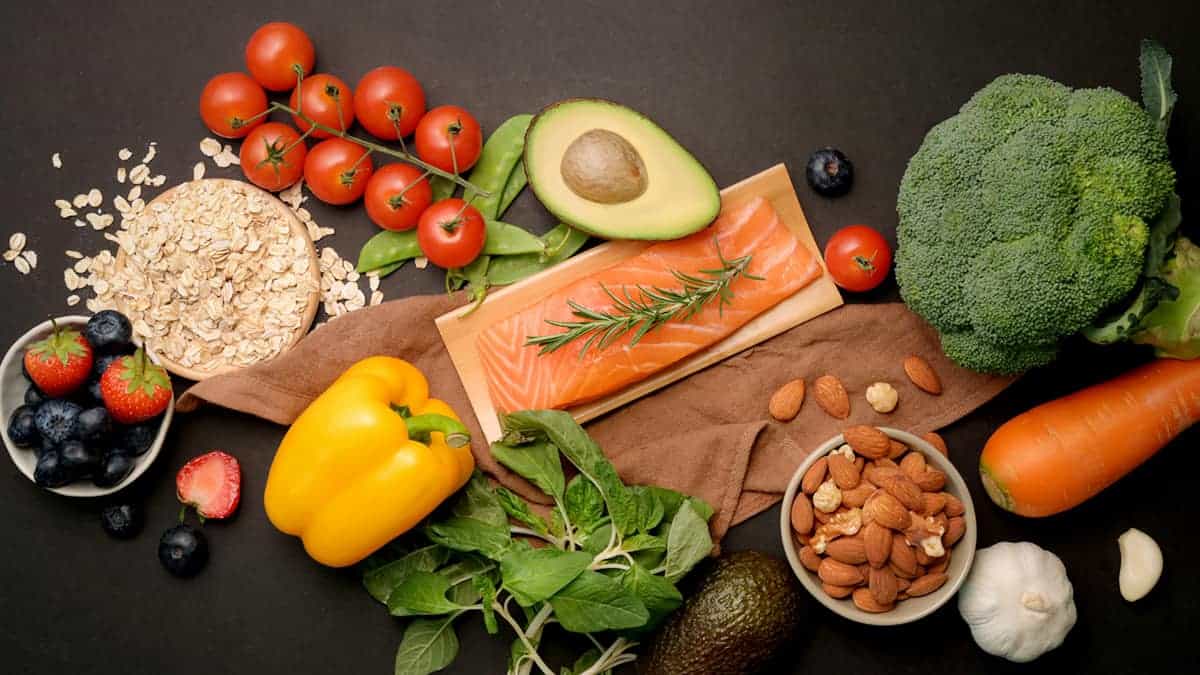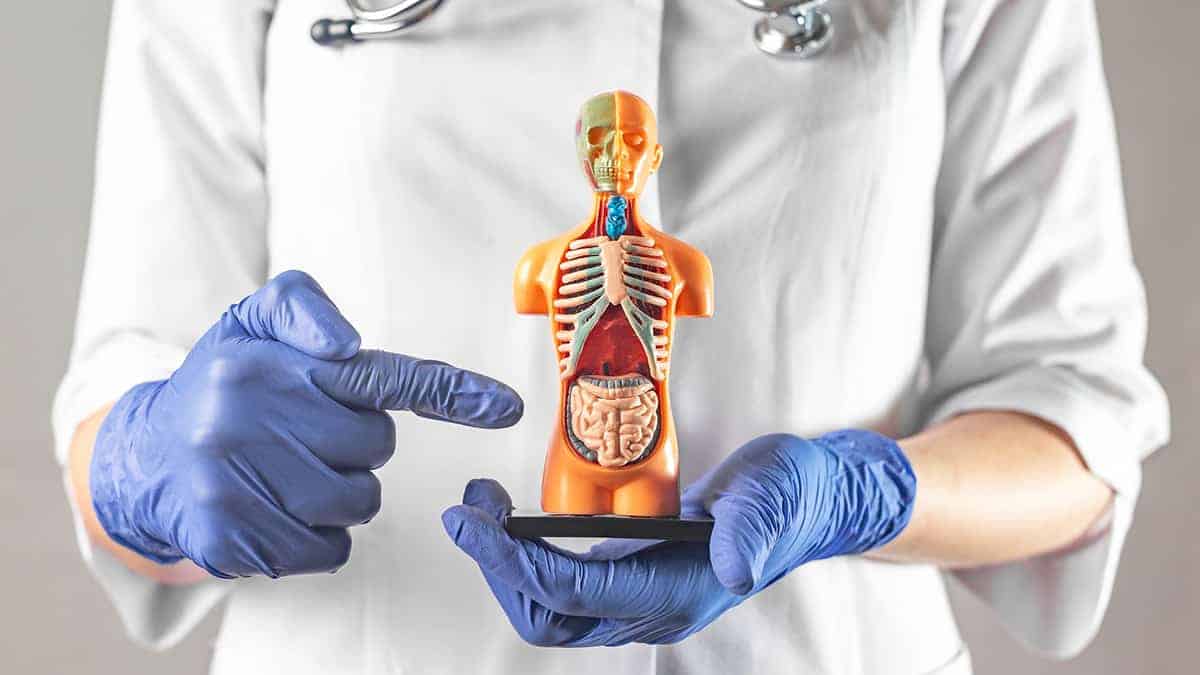
Superfoods Part 6: Foods That Promote Gut Health

The foods you feed your body play a big role in how well your body works and how healthy and well you feel. Some foods offer very little nutritional value, as you might have heard of “empty calories” while others contain high levels of vitamins, minerals, and other nutrients that boost health and help you tremendously . Eating these superfoods can play an important role in keeping your gut functioning at its best.
Your Digestive System
Your digestive system, also called your gastrointestinal system, or your gut, is important for turning food into fuel and helps keep you healthy. When you eat, food travels from your mouth, through your esophagus, to your stomach. From the stomach, food passes through your small intestine, large intestine or colon, and rectum, and passes out of your body through the anus when you go to the bathroom. Together, these organs form a tube stretching through your body that is about 30 feet long! Other organs, such as the gallbladder, liver, and pancreas also help with digestion by producing enzymes that break down food.
The primary role of the digestive system is breaking down proteins, carbohydrates, and fats into smaller pieces that the body’s cells can more easily absorb. However, the gut also performs several other jobs as well:
- Absorbing vitamins and minerals
- Soaking up water
- Eliminating waste
- Helping the immune system get rid of harmful germs
- Communicating with the brain to control digestion, appetite, and emotions
Gut Bacteria
Another very important part of the digestive system is bacteria. Some bacteria, such as E. coli or Salmonella, can make you sick if you eat foods that are contaminated with them. However, other “good bacteria” live in our intestines and are very important for keeping us healthy. Their roles include:
- Helping the body digest food
- Crowding out more harmful bacteria
- Keeping harmful substances from getting into the bloodstream
- Helping form a barrier on the cells of the intestine
- Boosting the immune system
- Creating new vitamins that our bodies can use
- Helping control appetite and how our body uses fat
- Communicating with the brain in order to control moods and emotions
- Helping the body fix damaged cells
The gut bacteria may also play a role in all sorts of different diseases, including cancer and asthma. Adopting habits that help gut bacteria thrive can help our bodies work properly and make us feel healthy.
Keeping Your Gut Healthy

- Exercising: Getting a lot of physical activity helps the muscles in the digestive system move properly, encourages the growth of more healthy bacteria, and causes lower levels of inflammation in the gut.
- Sleep: When you get regular sleep on a consistent schedule, your gut gets time to rest and reset. Lack of sleep can cause digestive system inflammation. People who don’t get good quality sleep are also more likely to have gastrointestinal diseases.
- Lowering stress: High stress levels can make the cells in the intestines more “leaky,” leading more harmful substances to be absorbed into the bloodstream. Some people may often get constipation, diarrhea, or other symptoms of gut diseases during times of stress, because the digestive system isn’t working at its best. See my article, “How Stress Affects the Gut and What You Can Do About It” for more.
One of the biggest factors in how your digestive system and your gut bacteria function is the foods that you eat. Proper nutrition keeps you at your healthiest. This is where superfoods come in. Eating foods that are easily broken down by your gut, that keep the cells of your digestive system working properly, and that keep your gut bacteria healthy can help you get the most nutrition out of your food and prevent disease.
Digestive Disorders
When the organs of the digestive system stop working properly, several different diseases and conditions can occur. A couple of the most common are:
- GERD or Acid Reflux: Sometimes, food from the stomach can start coming back up into the esophagus. This often leads to the feeling of heartburn.
- Peptic Ulcers: Sores that develop in the stomach or intestines are called peptic or stomach ulcers. They typically lead to stomach pain.
- Irritable Bowel Syndrome (IBS): People with IBS have frequent digestive symptoms, including diarrhea or constipation.
- Celiac Disease: When people with this condition eat gluten, found in wheat, barley, and rye, their digestive system becomes damaged. This causes many digestive symptoms when people eat foods containing gluten. Other people don’t have the gene mutations that cause celiac disease, but still feel sick when eating gluten. This condition is referred to as gluten intolerance.
All of these conditions may have more specific treatments that help with specific symptoms. However, the food you eat also plays a big role in when and how often these symptoms come up. Eating some hard-to-digest or less nutritious foods can lead to frequent digestive issues. On the other hand, regularly eating nutrient-packed superfoods helps your gut work the way it’s supposed to.
Probiotics

What Foods Have Probiotics?
You can buy probiotics in supplement form, or you can get them from fermented superfoods. These include:
- Cultured dairy products such as yogurt and kefir
- Sourdough bread
- Fermented cabbage like kimchi and sauerkraut (choose unpasteurized products in order to get probiotics)
- Fermented soybean products like tempeh, miso, and natto
- Kombucha (fermented tea)
Yogurt is one of the most widely available fermented superfoods. It is jam-packed with healthy bacteria. Choose yogurt brands that are labeled as having “live active cultures”. These cultures may include Lactobacillus, L. acidophilus, L. bulgaricus, or S. thermophilus. Yogurt makes for a great breakfast or afternoon snack. It can also be used in a sauce or a dip as a substitute for mayonnaise or sour cream. In addition to eating probiotic foods, you can also eat prebiotic foods to support gut health. While probiotics contain actual live bacteria, prebiotic foods help feed those bacteria. They can also help the body absorb nutrients such as calcium, decrease the risk of allergies, and improve the immune system. Some items that help good bacteria grow are oats, barley, cereals, dairy products, asparagus, artichokes, onions, garlic, bananas, beans, and honey.
Fiber

Fiber-Filled Foods
Whole grains have large quantities of both soluble and insoluble fiber, in addition to B vitamins, phytonutrients, and iron. Whole grains use the entire kernel of the grain. Refined grains are more processed, which removes a lot of the fiber as well as vitamins and minerals. To get more whole grains into your diet, substitute them for refined grains – for example, use brown rice instead of white rice, or wheat bread or pasta instead of the regular variety. Or try reaching for oatmeal for breakfast, or popcorn for a snack. You can also try cooking up some new grains as a side dish, such as quinoa, bulgur, or wheat berries. Nuts, seeds, and legumes also have high levels of fiber. Legumes include foods like beans, lentils, peas, peanuts, and soybeans, and are often thought of as superfoods because of all the health benefits they provide. Many legumes can be easily incorporated into side dishes. Nuts and seeds also make for great salad toppers, or a filling snack in between meals. Fresh produce also contains a lot of fiber. Some high-fiber fruit and vegetable superfoods include:
- Berries: In addition to fiber, berries often have other health-boosting nutrients like vitamin C and antioxidants. They can be easily added to any meal. Try topping yogurt, cereal, or oatmeal with blueberries or strawberries. Or blend frozen berries with other superfoods like yogurt, almond milk, or coconut water to make an extra nutritious smoothie. Add them to other meals by throwing them on top of salads or into desserts.
- Leafy greens: Superfoods like spinach, kale, and collard greens have a lot of vitamins A, C, E, and K, B vitamins, calcium, iron, and magnesium. Make up a salad with some greens, sauté them in olive oil, or toss some in a soup for an easy superfood boost.
- Cruciferous vegetables: Broccoli, Brussels sprouts, cabbage, and bok choy are a part of the cruciferous vegetable family. Some leafy greens like kale also fall into this category. Cruciferous vegetables contain immune-boosting phytochemicals as well as vitamins like folate and vitamin K. Try steaming, roasting, or stir-frying cruciferous vegetables as a side dish.
Polyphenols
Many plant-based superfoods contain polyphenols, antioxidants that repair damage and heal cells. When we eat these molecules, the cells of our intestines can’t absorb them very well, so they start piling up in the large intestine, where our gut bacteria use them as food and break them down so that our bodies can benefit from them. Polyphenols can help the digestive system in several ways. They can:
- Help keep bad bacteria from growing
- Encourage good bacteria to grow
- Help bacteria form a stronger barrier in order to protect the intestines from damage
- Boost metabolism and help fight diabetes, obesity, and high blood pressure
- Reduce inflammation
- Improve the immune system
- Protect against colon cancer
Coffee and tea both contain different types of polyphenols. Many fruits also contain these molecules, especially blueberries, kiwis, apples, and reddish-colored fruits like strawberries, raspberries, cherries, and blackberries. Other foods with polyphenols are onions, soy, red wine, and dark chocolate.
Conclusion

If you would like to discuss any digestive issues you may be experiencing with Dr. Connor, please make an appointment.




